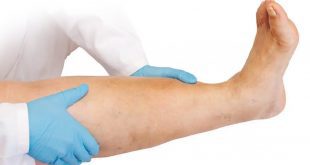 Chronic Obstructive Pulmonary Disease (COPD) and heart disease are interconnected systemically to chronic inflammation in the body. Most individuals are unaware of the fact that they have chronic inflammation, because it’s not typically something they can see and what they feel, they often ignore as general aging complaints like stiffness, brain fog, high blood pressure or high lipid levels, diabetes, etc. These issues are what lead to the vast number of comorbidities (More than one disease state).
Chronic Obstructive Pulmonary Disease (COPD) and heart disease are interconnected systemically to chronic inflammation in the body. Most individuals are unaware of the fact that they have chronic inflammation, because it’s not typically something they can see and what they feel, they often ignore as general aging complaints like stiffness, brain fog, high blood pressure or high lipid levels, diabetes, etc. These issues are what lead to the vast number of comorbidities (More than one disease state).
Patients with COPD have fluid retention, which is also attributed to cardiac issues, and can exacerbate cardiovascular conditions. For both sets of conditions diet is a critical component. Making sure that low sodium, low sugar and carbohydrates are minimal in the diet is helpful to lessen the effects of the inflammatory response. Exercise is also important but should be monitored and discussed with your physician.
Nearly 24 Million Americans have COPD, and large number of them are over the age of 40 and have a history of smoking or being subjected to respiratory irritants such as chemicals and pollutants. COPD is a disease that is encompassed by chronic bronchitis, emphysema, and asthma, causing shortness of breath, productive coughing and inflammation of the airways. It is a progressive lung disease with no cure. Most patients are put on steroids (oral and inhaled), bronchodilators and antibiotics.
COPD Causes Symptoms of Drowning in One’s Own Lung Fluid
Individuals with COPD often have incidents of fluid build-up, which can make it difficult for them to breath. They frequently feel as if they are drowning and call 911 often due to this terrifying sensation. This is why it’s important to speak to your physician about your COPD treatment and the best at home care techniques to keep you safe and comfortable.
Having a disorder like COPD is challenging with continual progressive changes and side effects. Talking to your physician about any fluctuations in your health or symptoms is critical.
COPD Symptoms
• Coughing
• Inability or struggling to breathe
• Producing phlegm
• Wheezing
• Shortness of breath with normal activity
• Blue tinge to fingernails
• Fatigue
Home Health Can Help Immensely with Cardiac Monitoring and Vital Prognosis. Home Health can Also Help Patients Avoid the ER.
Depending on the stage of the COPD, some patients might need to consider home health care or private duty nursing. When under home health care, their team of nurses and medical director can prevent these readmissions to the hospital by several means. The medical team can prescribe medications to block fluid build-up, have a daily vital reading monitored by a home health program, and have specialists help with understanding nutrition, and how to keep calm and learn to breathe more functionally through the episodes. Your physician is still in charge of your medical care, and all reports from the home health team are reported to your primary care doctor.
Home Health Services
• Skilled nursing services
• Physical Therapy
• Occupational Therapy
• Speech Therapy
• Home rehabilitation services
• Nursing assessment at each home visit to monitor
and manage progress
Lake Centre Home Care is a skilled home health agency that provides nursing; physical, occupational, and speech therapy; along with home health aides and medical social services.
Lake Centre Home Care offers comprehensive patient care. Lake Centre Home Care accepts Medicare Assignment and private insurance with pre.authorization.
To find out more, please call Lake Centre Home Care today.
Lake Centre Home Care
310 Market St., Leesburg, FL 34748
(352) 315-0050
HHA# 299992424
 Central Florida Health and Wellness Magazine Health and Wellness Articles of the Villages
Central Florida Health and Wellness Magazine Health and Wellness Articles of the Villages



